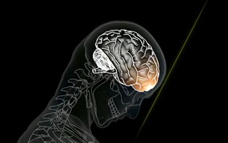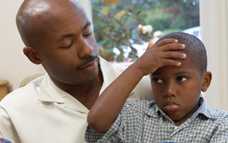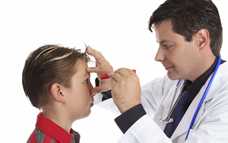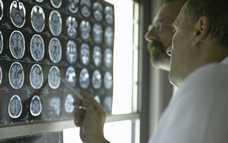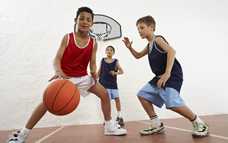Recovery from Concussion
Most children with a concussion feel better within a couple of weeks. However for some, symptoms will last for a month or longer. Concussion symptoms may appear during the normal healing process or as your child gets back to their regular activities. If there are any symptoms that concern you or are getting worse, be sure to seek medical care as soon as possible.
What Steps Should My Child Take to Feel Better?
Making short-term changes to your child’s daily activities can help him or her get back to a regular routine more quickly. As your child begins to feel better, you can slowly remove these changes. Use your child’s symptoms to guide return to normal activities. If your child’s symptoms do not worsen during an activity then this activity is OK for them. If symptoms worsen, your child should cut back on how much he or she can do that activity without experiencing symptoms. It is important to remember that each concussion and each child is unique, so your child’s recovery should be customized based on his or her symptoms.
Recovery Delays
Factors that might delay recovery include your child having:
- a history of a previous concussion or other brain injury,
- neurological or mental health disorders,
- learning difficulties, and/or
- family and social stressors.
1. Rest
Your child should take it easy the first few days after the injury when symptoms are more severe.
- Early on, limit physical and thinking/remembering activities to avoid symptoms getting worse.
- Avoid activities that put your child at risk for another injury to the head and brain.
- Get a good night’s sleep and take naps during the day as needed.
2. Light Activity
As your child starts to feel better, gradually return to regular (non-strenuous) activities.
- Find relaxing activities at home. Avoid activities that put your child at risk for another injury to the head and brain.
- Return to school gradually. If symptoms do not worsen during an activity, then this activity is OK for your child. If symptoms worsen, cut back on that activity until it is tolerated.
- Get maximum nighttime sleep. (Avoid screen time and loud music before bed, sleep in a dark room, and keep to a fixed bedtime and wake up schedule.)
- Reduce daytime naps or return to a regular daytime nap schedule (as appropriate for their age).
3. Moderate Activity
When symptoms are mild and nearly gone, your child can return to most regular activities.
- Help your child take breaks only if concussion symptoms worsen.
- Return to a regular school schedule.
4. Back to Regular Activity
Recovery from a concussion is when your child is able to do all of their regular activities without experiencing any symptoms.
Also, be sure to:
- Schedule a follow up appointment for your child’s doctor or nurse.
- Ask your child’s doctor or nurse about safe over-the-counter or prescription medications to help with symptoms (e.g., Ibuprofen or acetaminophen for headache).
- Limit the number of soft drinks or caffeinated items to help your child rest.
Post-Concussive Syndrome
While most children and teens with a concussion feel better within a couple of weeks, some will have symptoms for months or longer. Talk with your children’s or teens’ health care provider if their concussion symptoms do not go away or if they get worse after they return to their regular activities.
If your child or teen has concussion symptoms that last weeks to months after the injury, their medical provider may talk to you about post-concussive syndrome. While rare after only one concussion, post-concussive syndrome is believed to occur most commonly in patients with a history of multiple concussions.
There are many people who can help you and your family as your child or teen recovers. You do not have to do it alone. Keep talking with your medical provider, family members, and loved ones about how your child or teen is feeling. If you do not think he or she is getting better, tell your medical provider.
Heads Up Video: Concussion
Real Stories: Molly’s Mom’s Story
Learn More about Concussions and Brain Injury
- Page last reviewed: June 26, 2017
- Page last updated: June 26, 2017
- Content source:
- Centers for Disease Control and Prevention,
- National Center for Injury Prevention and Control,
- Division of Unintentional Injury Prevention


 ShareCompartir
ShareCompartir
